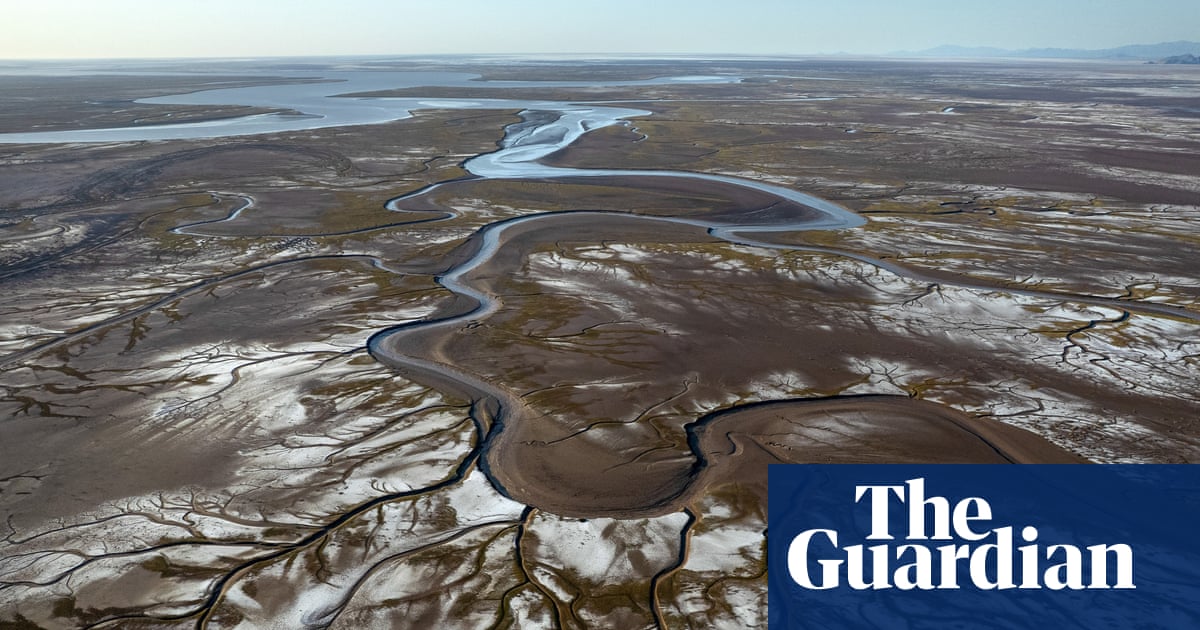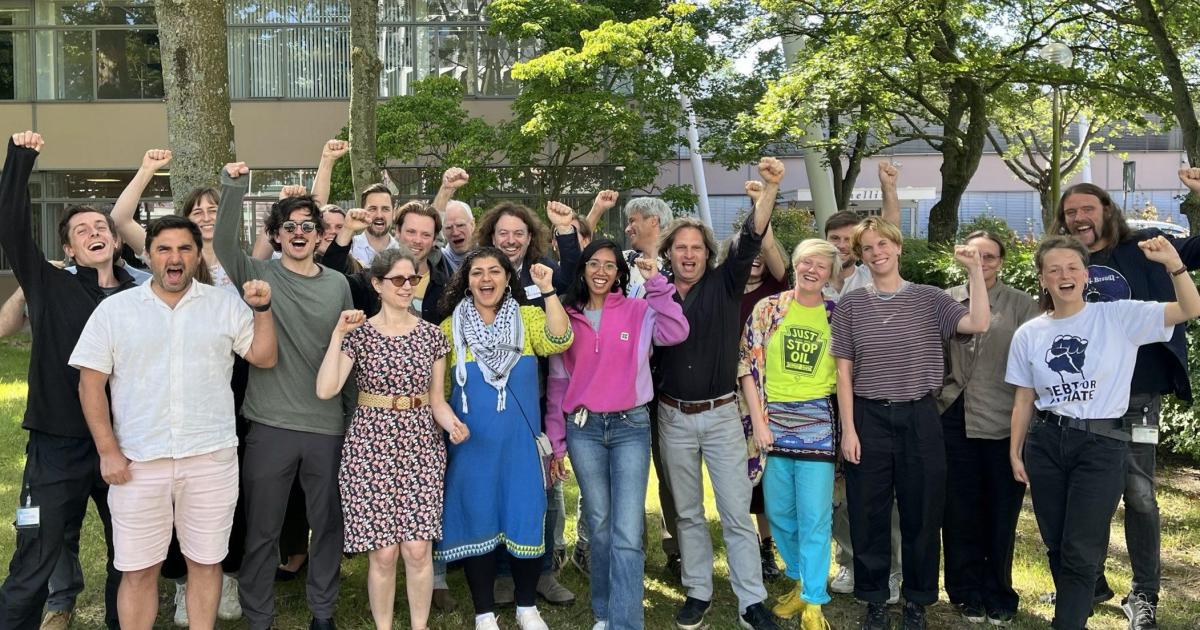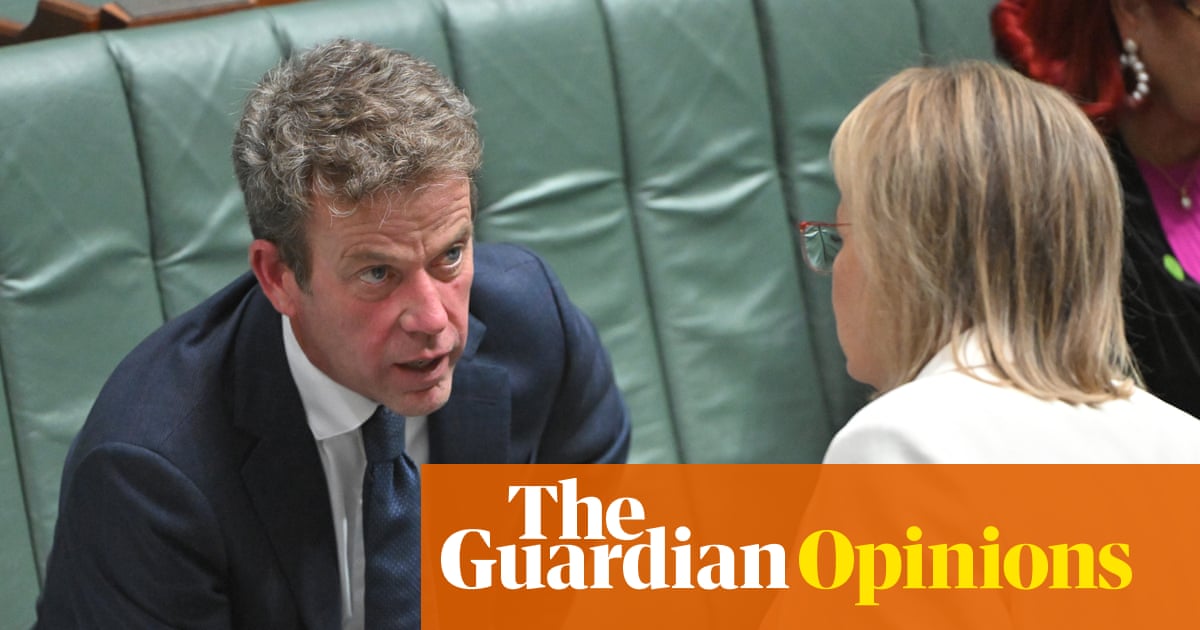PROTECT YOUR DNA WITH QUANTUM TECHNOLOGY
Orgo-Life the new way to the future Advertising by AdpathwayKey events Show key events only Please turn on JavaScript to use this feature
That’s a wrap for day three of the 30th UN climate negotiations, here’s what happened:
-
A climate justice flotilla of more than 100 boats with 5,000 indigenous activists, forest defenders and other civil society campaigners arrived in the host city, for the start of the “People’s Summit” that will run alongside the main climate talks.
-
The International Energy Agency (IEA) launched its 2025 World Energy outlook which shows that more renewables will be built between now and 2030 than in the last 40 years combined. The world is still on course to reach Peak Oil (and coal) by 2030 despite Donald Trump.
-
A damning new report by Amnesty International found that a quarter of the world’s population lives within three miles (5km) of operational fossil fuel projects, potentially threatening the health of more than 2 billion people.
-
Twelve countries signed the Declaration on Information Integrity on Climate Change marking the first time any states have formally committed to rooting out climate disinformation.
-
The Cop30 Presidency’s open plenary “stocktake” lasted only 3 minutes after it was announced that more consultations were needed. Further talks are planned for Thursday and Friday with the “stocktake” postponed until Saturday.
My colleague Damien Gayle will be back for day four bright and early tomorrow. Tenham uma boa noite, camaradas.
Dharna Noor
It’s time to stop denying the denial
Brazil’s president has called Cop30 the “Cop of Truth,” and today, information integrity was in the limelight, reports Dharna Noor, a Guardian US environment reporter.
The Declaration on Information Integrity on Climate Change was launched on Wednesday, marking the first time any states have formally committed to fighting against climate disinformation. It follows the inclusion of information integrity on the Cop agenda for the first time, and is a “breakthrough moment,” said Charlotte Scadden, senior advisor on information integrity to the UN Global Communications, at a press conference in Belém.
The declaration, which was signed by 12 countries, calls on governments, business, and academia to promote accurate information and fight off climate denialism and attacks on environmental science and journalism. To do so, each country agreed to support a robust media ecosystem, promote equal access to accurate information about climate issues, boost capacity to promote information integrity, and push private sector interests such as big tech to fend off disinformation and irresponsible advertising.
The signatories so far include Brazil, Canada, Chile, Denmark, Finland, France, Germany, Spain, Sweden, Uruguay, Netherlands and Belgium
The long overdue commitment comes as climate disinformation is on the rise. A recent report by Coalition Against Climate Disinformation, an international media content watchdog, and Observatory for Information Integrity, an environment and democracy-focused research organization, found a 267% increase in Cop-related disinformation circulating in media and online from July to September 2025.
Climate disasters can also trigger increases in the spread of false climate information, studies have shown.
Hours before the declaration was announced, almost 400 organizations, academics, and global leaders including two key architects of the 2015 Paris agreement - Christiana Figueres, former UN climate executive secretary, and Laurence Tubiana, France’s chief climate negotiator - published an open letter urging national governments to uphold information integrity and fight climate disinformation.
Timmons Roberts, a climate disinformation expert at Brown University and veteran Cop participant, told the Guardian that there has for too long been a “denial of the denial” at the climate talks.
Declarations can seem esoteric and squishy. But this one could make a difference. We’re not going to solve climate change unless we understand the forces that are arraying to stop climate action. This declaration is an important step to getting there.
The spread of climate disinformation can benefit polluters and their political allies, while taking a massive toll on frontline communities. Melissa Lem, a family physician and president of the Canadian Association of Physicians for the Environment, said:
As physicians, we’re left picking up the pieces when climate disinformation costs health and lives. During wildfires, floods and heatwaves, false information spreads faster than facts, leaving people unable to protect themselves. Like toxic air and water pollution, information pollution threatens our health and safety.
Earlier on Wednesday, ClientEarth, a legal and policy environmental nonprofit, released new research showing how major social media platforms (Facebook, Instagram, TikTok, YouTube, and X) amplify and incentivize the spread of climate disinformation. Kayle Crosson, a senior officer at ClientEarth, said:
Having information integrity on the agenda for the first time in Cop history must serve as a wake-up call. It’s a clear recognition of disinformation as one of the major obstacles stalling climate progress – and a warning to us all.
This is climate breakdown
Abbie Martin splits her time between captaining a boat in the Virgin Islands and doing research in Brazil’s Pantanal, a region that includes the world’s largest tropical wetland and where she founded the Jaguar Identification Project. Fires in the Pantanal have reached new extremes, killing at least 17 million vertebrate animals and burning 27% of the vegetation cover in 2020.
When a fire is really big, all the animals find this small spot where it’s not burning. Then it burns and they all die together. You have a cemetery – howler monkeys, capuchins, coatis, birds and iguanas. Everyone in the area, dead together.
The fires aren’t going anywhere. It’s a combination of factors. It’s natural cycles. It’s political, the livestock industry is responsible for fires in the Pantanal, opening up the land for cattle. It’s climate change. It’s getting worse.
Read Abbie’s story which is part of our this is climate breakdown series featuring first-person accounts of why what happens at Cop matters
The global fossil energy system is deeply implicated in conflict, occupation – and the climate crisis. Research by the UK-based Conflict and Environment Observatory (CEOBS) has found that the global military accounts for at least 5.5% of total global greenhouse gasses – even without accounting for conflict related emissions. This makes the global military the fourth-largest carbon polluter on Earth, bigger than Russia and behind only China, the US, and India.
The Global North spends 30 times more on its militaries than they do on climate finance, yet states are not obliged to report military emissions to the UNFCCC. And it’s getting worse. Global defence spending hit $2.7 trillion in 2024 amid mounting geopolitical turmoil – which is more than double the Global South’s demand for climate finance at Cop30, according to War on Climate, a group of experts calling for the full accounting of military emissions.
This is another story we’ve been reporting on closely in the past couple of years, especially the climate impact of Russia’s war on Ukraine and Israel’s war on Gaza.
Here’s one to watch for tomorrow: Oil Change International, Palestinian Institute for Climate Strategy, Global Energy Embargo for Palestine, and Trade Unions for Energy Democracy NOW will hold a press conference at 12pm Belém time to unveil a new report tracing the countries and corporations which have sent millions of tonnes of fossil fuels to Israel since October 2023.
The uninterrupted fuel supplies have enabled the bombs, tanks, and bulldozers that have caused at least 70,000 Palestinians killed in Gaza, and tens of thousands more injured and unaccounted for. There’s also been record numbers of Palestinians killed and homes wrecked in the occupied West Bank over the past two years.
This is a story that the Guardian has covered in-depth, you can read more here
Back to my topic of the day, the Belem Action Mechanism for a Just Transition… thanks to everyone who wrote in with reaction. Keep it coming.
Tyrone Scott from the UK-based anti-poverty group War on Want, said:
The G77’s statement shows the Global South is leading where the North has stalled — demanding a mechanism that puts people, not profit, at the centre of transition. The UK, with its historic responsibility for emissions, should be backing this call, not blocking it. For a government that claims to be ‘doubling down’ on tackling climate change, opposing a fair global mechanism is the height of hypocrisy.
Chadli Sadorra from the Asian Peoples’ Movement on Debt and Development said a new body would have the potential to address global rules on finance that currently block efforts at the national level, and help coordinate efforts within and beyond the UNFCCC.
The proposal for the Belem Action Mechanism arose from issues caused by the climate crisis - as well as climate action. We have demanded concrete action for years and now the G77 has heeded our call…[this is] proof that developing countries, trade unions, movements, and civil society are united on the need for a global just transition mechanism. This is a huge step in the right direction.
Ultimately, a just transition mechanism will put support and rights for workers at the heart of climate cooperation.
Bert De Wel, the global climate policy coordinator at the International Trade Union Confederation, told my colleague Dharna Noor that the G77/China proposal was an important first step.
This is important, the BAM is now on the table. Workers and their unions want a place in the UNFCCC to discuss labour rights and social justice. The BAM has to provide this. Now the important discussion can start about its functions and objectives. The BAM has to support the implementation of climate policies… [and provide for meaningful engagement with all relevant civil society groups including the trade unions representing the workers. Nothing about us without us.

Fiona Harvey
Here are more details from my colleague Fiona Harvey on Al Gore’s new Climate Trace tool that can map emissions and air pollutants.
Spreading best practice on minimising carbon emissions from the most efficient industrial sites to the laggards would cut tens of billions of tonnes of carbon dioxide in the next two decades, and provide a vital route to limiting global temperature rises, new analysis shows.
Climate Trace. a non-profit coalition, uses AI and satellite imagery to pinpoint facilities with large emissions, that could most benefit from intervention, and where it could be done cheaply. Targeting facilities in this way – such as steel plants, refineries, landfill dumps, megafarms and other large carbon sources – would be an efficient way of trying to ensure that emissions are cut as rapidly as possible.
Gore told the Guardian:
We have identified point sources of emissions around the world, and we’ve identified those that have come up with high-quality, cost-effective ways to decarbonise. Then we have identified other facilities with the same basic technology, scale, and industry subsector, where the successful strategies that we’ve identified as having worked can be successfully replicated.
In the steel sector, for instance, if the facilities tracked by Climate Trace were converted to electric arc furnaces, about 20.5 billion tonnes of carbon dioxide could be saved by 2050. That is about half of a year’s current emissions from all sources.
The tools could be used to “give a ready-made blueprint” to companies to show where they could decarbonise fastest. In the case of the steel sector, for instance, about a third of large steel plants around the world are due to be expensively “re-lined” in the next five years. If those facilities were converted to the most efficient low-carbon technology instead of simply refurbished, it would be a relatively easy win in decarbonising a stubbornly high-carbon industry.
The same could be done for other industrial sectors, and for other sources of emissions such as farming and land management. For instance, Uganda has managed to reduce its forest fires by more than half in recent years – if the same techniques were replicated in Ghana, that could achieve a similar transformation, which would benefit local people and cut the impact on the planet, according to Climate Trace.
Coal mines release vast quantities of methane, a powerful greenhouse gas that is estimated to be responsible for about a third of recent global heating. Climate Trace can identify them and show where technology to capture and use the methane would be most effective.
Gore hopes that Climate Trace’s data could also be used by countries to help draft their national climate plans. Called nationally determined contributions (NDCs), these set out how far and how fast, and by what measures, countries hope to curb their carbon output, in line with the Paris agreement target of limiting global heating to 1.5C above pre-industrial levels.
Governments from nearly 200 countries – but minus the US, the largest historic emitter which under Donald Trump is withdrawing from the Paris agreement – are meeting in Brazil this week and next to discuss their NDCs, which are currently inadequate to fulfil the Paris obligations.
Gore added:
Our findings can be integrated into sensible, practical plans to move from data to action. Nations can use that, if they choose, for their NDCs.
It’s not easy unifying 134 vastly different countries – which is how many members the G77 bloc now has including China, India, Brazil, Saudi Arabia, Benin, Cameroon, Costa Rica, Cuba, Jordan, Tonga and the State of Palestine.
Here’s more reaction to the G77/China backing a Just Transition Mechanism – and much of the Global North blocking it – and what it could and should achieve.
Hugo Gabbero, director of the International Federation for Human Rights’ defenders desk, said:
There is no time to waste after the negotiation failures of Cop29. Cop30 needs to deliver… the Just Transition Mechanism is essential to ensure states can coordinate and accelerate just transition pathways across societies and economies.
But no mechanism can work without human rights at its core. Across the world, environmental human rights defenders and communities who are fighting for a fossil fuel phaseout or opposing harmful projects mislabeled as transition policies are paying the price of repression and criminalisation. Indigenous Peoples too bear the brunt of transition policies that sideline human rights.
The Mechanism is the way to make all those voices and demands heard by those who have the power to implement them. It must guarantee the full and meaningful participation of the voices fighting for real solutions and the fulfilment of human rights.
Nona Chai, the program coordinator at the Just Transition Alliance, criticized the Global North’s claim that at a mechanism already exists and that just transition is in everything,
We are deeply concerned with the Global North blocking support… their lack of ambition for a just transition mechanism reveals a larger historical pattern of the Global North countries taking advantage of the Global South and failing to provide reparations.
The popularization of just transition doesn’t ensure its success. We need a powerful and inclusive institutional center to create focus, clarify definitions, and provide technical assistance and resources to the Global South, frontline workers, Indigenous Peoples, and fenceline communities. Resources need to be direct and non-debt creating funding in order to create a truly just transition.
Why does BAM matter?
The call to elevate the current Just Transition work programme to a formal mechanism comes amid growing evidence that the shift from fossil fuels risks being just as exploitative and unequal as the extractive energy economy that we currently have. These concerns were summarized in July by the UN secretary general António Guterres:
The critical minerals that power the clean energy revolution are often found in countries that have long been exploited. And today, we see history repeating. Communities mistreated. Rights trampled. Environments trashed. Nations stuck at the bottom of value chains – while others reap rewards. And extractive models digging deeper holes of inequality and harm. This must end.
Advocates of BAM, say that the new mechanism should be designed to address the current fragmentation and limits of global Just Transition efforts, and require states to take concrete steps to ensure that the energy transition delivers justice, transparency and shared prosperity. It would formalize cooperation and knowledge sharing, and prioritize non-debt-inducing finance and technology transfer - key tenets of the Paris agreement and the principle of Common But Differentiated Responsibilities and Respective Capabilities (CBDR-RC), which let’s not forget every state is obliged to comply with, according to the International Court of Justice.
Harjeet Singh, strategic advisor to the Fossil Fuel Non-Proliferation Treaty Initiative and consistently the best dressed climate activist, said:
Dubai COP gave us the promise to ‘transition away’ from fossil fuels; Belém must deliver the plan. The Belém Action Mechanism, now championed by the G77 and China, is that plan.
Without it, just transition remains empty rhetoric. Developing countries are ready to move, but they cannot implement this vision alone. They need real finance, technology, and capacity, not more debt. The ball is in the court of developed nations. It’s time to stop delaying.
Gaining support from China is a big deal. China controls the majority of the world’s critical mineral supply chain, though the US is extremely keen to expand its share. Neither of the world’s two largest greenhouse gas emitters has historically been supportive of UN initiatives that impose fresh rules on their markets. The US, as we know, is boycotting Cop and back to old-school climate change denial under Donald Trump.
Can Belém deliver a Just Transition Mechanism?
In 2023 at Cop28 in Dubai, countries finally agreed to ‘transition away’ from fossil fuels. Since then the extraction, expansion, subsidies, greenhouse gas emissions and profits from oil, gas and coal have continued apace alongside the boom in much cheaper and cleaner renewables like solar and wind, and the rush for transition-minerals such as lithium and cobalt.
This year, among the key demands from the climate justice movement - which includes Indigenous peoples, frontline communities, human rights advocates, youth groups and workers – is for a new institutional arrangement or formalized body within the UNFCCC to accelerate, coordinate and support a true global Just Transition, including in mineral-producing countries where concerns about land grabs, the exploitation of workers and other abuses are mounting.
The Belem Action Mechanism for a Just Transition, known by its catchy acronym BAM, is the proposed arrangement which on Tuesday got a huge boost after the G77 and China, which collectively represents around 80% of the world’s population, announced a strong and unified call in support of creating a Just Transition Mechanism.
The G77/China bloc of developing countries emphasized the need to strengthen international cooperation and ensure that just transitions are equitable, inclusive, and responsive to the diverse needs of all nations, which must be done within the context of sustainable development and poverty eradication. The Climate Action Network (Can), the largest international coalition of environmental nonprofits, said:
Thank you to the G77 + China for bringing a ray of light and hope to these negotiations.
Surprise surprise, wealthy developed countries including Japan, Norway, the UK, Australia, Canada and the EU, did not support the G77/China proposal.
You can read more on who said what in this super helpful newsletter from the Third World Network, always great source on the ins and outs of the negotiations from a Global South perspective.

Oliver Milman
Al Gore has just treated, if that’s the right word, Cop30 delegates to a sort of slide show of horrors caused by the climate crisis, writes my colleague Oliver Milman.
Standing in front of a huge projection screen showing images of recent disasters around the world that were worsened by global heating, Gore said that it is “literally insane that we are allowing this to continue.”
Gore, the former US vice president and climate advocate, appeared slightly croaky (there is a bit of a bug sweeping around Belem) but raised his voice in frustration as he showed images charting record drought in the Amazon, Greenland shedding its ice, huge downpours and storms that have wiped out communities in Vietnam, Jamaica, Brazil, the Philippines and the US in recent times.
How long are we going to stand by and keep turning the thermostat up so that these sort of events get even worse?
We need to adapt as well as mitigate, but we also need to be realistic that if we allow this insanity to continue, to use the sky as an open sewer, that some things will be very difficult to adapt to.
Gore also took shot at tech billionaire and major land owner Bill Gates, who he recently criticized in an interview with the Guardian. Gates, the Microsoft co-founder, has advocated moving away from tackling the climate crisis to instead focus on its impacts upon health.
Gore said it was notable that Hurricane Melissa, the category 5 superstorm which devastated Jamaica last month, hit the island on “the exact same day that some erstwhile climate advocate said we should dial down on climate change mitigation.”
This is the only public facing event by Gore at this year’s Cop. His main focus at the summit has been to promote his Climate TRACE project, which is mapping planet-heating emissions and air pollutants causing health problems from around the world. Gore said:
We are very excited about these new tools. We have got the technology and the deployment models. Some people think we don’t have the political will but as I like to remind people, political will is a renewable resource.
I am going to be blogging this afternoon on the proposed Just Transition Mechanism, and if you don’t know what that is, stick around for a crash course. If you want to share thoughts or reaction, feel free to reach out to me at [email protected].


.png) 11 hours ago
3
11 hours ago
3


















.jpg)






 English (US) ·
English (US) ·  French (CA) ·
French (CA) ·